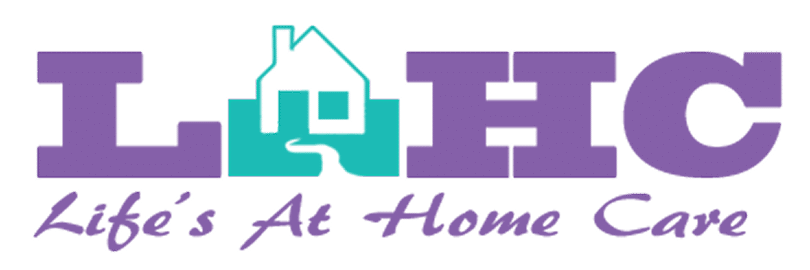
National Aphasia Awareness Month shines a spotlight on speech and language challenges that often accompany cognitive decline. Families already focused on dementia home care may notice that their loved one struggles to find words, follow conversations, or read familiar text. These changes deserve careful attention because aphasia can deepen isolation, complicate daily tasks, and mask other health concerns.
At Life’s at Home Care, we see how targeted support keeps communication open and protects quality of life.
What Is Aphasia?
Aphasia is a language disorder caused by injury to regions of the brain that control speech and comprehension. While stroke remains the most common trigger, progressive brain diseases such as Alzheimer’s disease, Lewy body dementia, and frontotemporal degeneration can also damage these centers.
People with aphasia may:
- Speak in short or incomplete sentences
- Substitute incorrect words or sounds
- Struggle to understand fast-paced conversation
- Have trouble reading, writing, or following written instructions
These symptoms differ from typical memory loss, yet they can appear side-by-side with dementia, creating a complex care picture.
How Aphasia and Dementia Intersect
Aphasia linked to dementia rarely shows up overnight. Instead, subtle shifts—pauses mid-sentence, odd word choices, frustration when naming objects—grow over months or years. Memory gaps may hide early warning signs because the person forgets the moment of confusion. Dementia home care partners often report “good days and bad days,” adding to uncertainty.
Recognizing the overlap between language decline and cognitive decline guides more personalized medical evaluations and therapy plans.
Signs Families Should Watch For
- Abrupt silence during familiar stories – Your loved one stops talking halfway through a well-known anecdote.
- Word substitutions – They say “that thing” instead of “remote control” or mix up everyday terms.
- Yes-or-no answers to open questions – Short replies mask difficulty processing complex sentences.
- Withdrawal from social settings – Fear of embarrassment leads to fewer phone calls, meals out, or church visits.
Document changes and share them with physicians. Early intervention offers the best chance to slow decline and manage frustration.
Why Early Speech Support Matters
Speech-language pathologists (SLPs) teach strategies that keep communication flowing:
- Cueing techniques: Gestures, picture cards, and first-letter prompts spark word retrieval.
- Simplified scripts: Practiced phrases help with routine tasks such as ordering meals or requesting help.
- Alternative tools: Tablets with text-to-speech apps or large-print communication boards open new channels.
Family members benefit from dementia home care coaching, too. Slowing speech, using yes-no questions, and maintaining eye contact reduce anxiety for everyone involved.
Coordinating Care at Home
Aphasia multiplies caregiving demands, especially when dementia also affects memory, judgment, and mobility. A structured home routine keeps stress down:
- Set predictable schedules for meals, exercise, and personal care.
- Label common items with words and pictures to support recognition.
- Create quiet zones free from TV chatter, allowing the brain to focus on one message at a time.
- Use simple, step-by-step instructions rather than lengthy explanations.
When family members need assistance, trained dementia home care aides from Life’s at Home Care can reinforce therapy goals, monitor safety, and provide respite breaks that prevent burnout.
Support Resources for Caregivers
- National Aphasia Association (aphasia.org) – Offers free webinars, local support group listings, and tip sheets.
- Alzheimer’s Association – Provides guidance on managing dementia-related communication issues and links to helplines.
- Speech-language pathology clinics – Many universities run low-cost therapy programs staffed by supervised graduate students.
- Virtual caregiver communities – Online forums let relatives share victories, frustrations, and creative problem-solving around the clock.
Caregivers should schedule their own health check-ups and carve out leisure time. Stress reduction improves patience and communication clarity.
Final Thoughts
Aphasia layered onto dementia need not silence the person you love. Patience, practical communication tools, and skilled dementia home care team members from Life’s at Home Care can sustain meaningful conversations—spoken or otherwise—well into the journey.
By honoring National Aphasia Awareness Month, we reaffirm the right of every senior to be heard and understood in the place they know best: home.
If you or an aging loved one is considering Dementia Home Care in Hampton, VA, please contact the caring staff at Life’s At Home Care today! Chesapeake Office (757) 337-5160
Richmond Office (804) 396-6000
Life’s at Home Care is a top provider of home care services in Suffolk, Hampton, Virginia Beach, Portsmouth, Newport News, Norfolk, Chesapeake, Chesterfield, Hanover, Henrico, and the Richmond, Virginia area.


